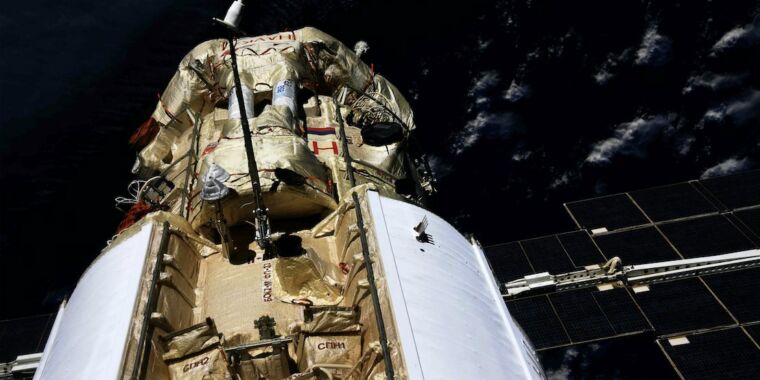
About three hours after linking to the station, Nauka began firing its propulsion thrusters, throwing the space station off kilter.
Then, in concert with flight controllers in Moscow, the teams commanded the station to fire its thrusters on the Russian segment of the space station, as well as a Progress supply vehicle attached to the laboratory.
Following this near miss, NASA hastily called a news conference and brought out key figures before the media, including human spaceflight chief Kathy Lueders and the leader of the International Space Station program, Joel Montalbano.Now that the immediate danger has passed, the most pressing concerns are that this happened at all and what it may mean for ongoing Russian participation in the International Space Station program.At around the same time, Russia announced that there was a small hole in a different Soyuz vehicle, already attached to the International Space Station. “We are able to narrow down the cause to a technological mistake of a technician," Rogozin said of the problem.And it has to be relieved that, regardless of its myriad troubles in getting to the space station, Nauka is now there and functional.
This is important because it likely cements Russian participation in the space station for the remainder of this decade.
Indeed, just on Saturday, two days after Nauka's troublesome docking, Roscosmos issued a statement saying it was continuing a study of a new station project in low Earth orbit called the Russian Orbital Service Station.
But until that time, the International Space Station is NASA's only game in town.
NASA could pay a company like Axiom to accelerate development of its commercial module that will dock to the station, which could take over the propulsion tasks of the Russian Service Module now attached to the station.